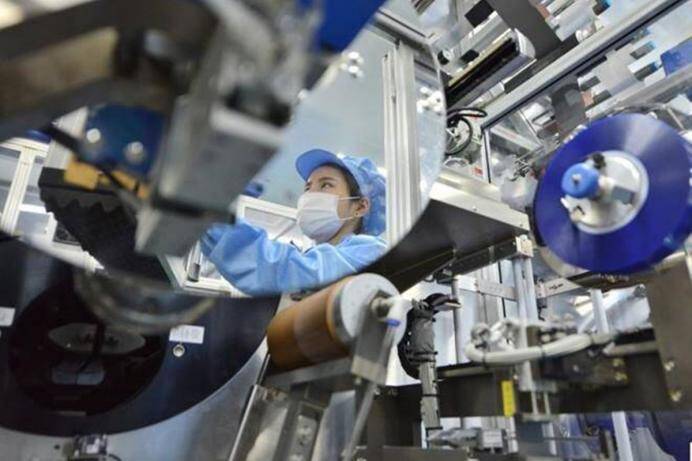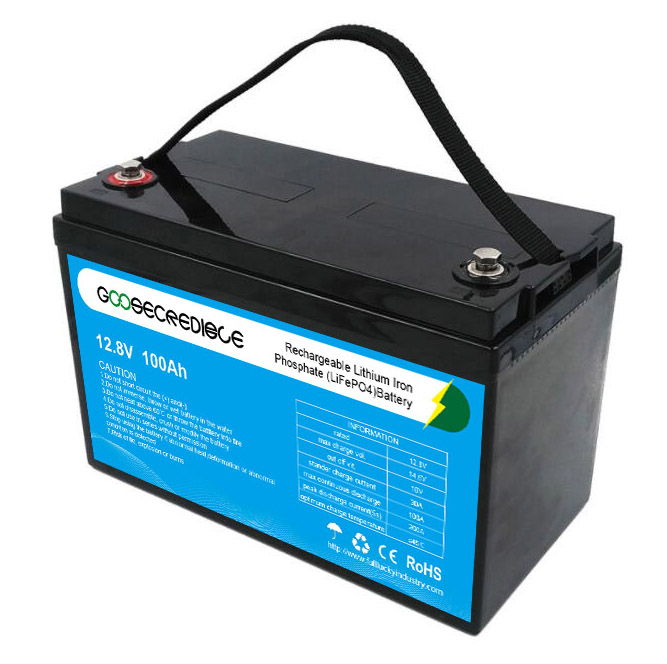Revolutionizing the Battery Industry: Innovations and Trends
Le battery industry has witnessed a rapid evolution in recent years, driven by advancements in technology and a growing demand for more efficient and sustainable power sources. As the world becomes increasingly reliant on portable electronic devices, electric vehicles, and renewable energy sources, the need for high-performance batteries has become paramount. This article explores the innovations and trends that are revolutionizing the battery industry and shaping the future of energy storage.
One of the most significant advancements in battery technology is the development of lithium-ion batteries. These batteries have revolutionized portable electronics, enabling longer-lasting and more powerful devices. Lithium-ion batteries store and release energy through the movement of lithium ions between two electrodes, a process that results in higher energy density and faster charging times compared to traditional batteries. With continuous research and development, lithium-ion batteries have become smaller, lighter, and more efficient, making them the preferred choice for smartphones, laptops, and other portable devices.
The rise of electric vehicles (EVs) has also fueled the demand for high-capacity batteries that can provide long-range performance. The automotive industry has responded by investing heavily in battery research and development. One notable innovation is the solid-state battery, which offers increased energy density, faster charging times, and improved safety compared to traditional lithium-ion batteries. Solid-state batteries use a solid electrolyte instead of a liquid electrolyte, reducing the risk of leakage or explosion. Companies like Toyota and BMW have already announced plans to introduce solid-state batteries in their upcoming electric vehicles, promising to revolutionize the EV market.
Renewable energy sources like solar and wind power have become increasingly popular alternatives to traditional fossil fuels. However, their intermittent nature poses challenges for grid stability. Energy storage systems, primarily based on batteries, have emerged as a solution to this problem. These systems store excess energy during periods of low demand and release it during peak hours or when renewable sources are unavailable. Lithium-ion batteries, with their high energy density and ability to deliver power quickly, are the preferred choice for energy storage. As demand for renewable energy continues to grow, advancements in battery technology will play a crucial role in ensuring a reliable and sustainable energy grid.
In addition to lithium-ion and solid-state batteries, other promising battery technologies are being explored. One such technology is the lithium-sulfur battery, which has the potential to deliver higher energy density and lower costs compared to existing battery technologies. Lithium-sulfur batteries use a sulfur-based cathode and a lithium metal anode, offering the possibility of storing more energy within the same volume. Researchers are working to overcome challenges such as the degradation of the sulfur cathode and the formation of dendrites on the lithium anode to make lithium-sulfur batteries commercially viable.
Another area of innovation is the development of flexible and stretchable batteries. These batteries are designed to be integrated into wearable devices, electronic textiles, and even implantable medical devices. Flexible batteries use innovative materials and designs to withstand bending and stretching without compromising performance. As the demand for wearable technology continues to grow, flexible and stretchable batteries will play a vital role in enabling new applications and improving user comfort.

As the battery industry continues to evolve, sustainability has become a key focus. The extraction and disposal of battery materials have significant environmental impacts. To address this issue, researchers are exploring alternative materials and manufacturing processes. For instance, the use of bio-based materials and recycling of battery components can reduce the carbon footprint associated with battery production. Additionally, advancements in battery management systems and smart charging technologies can prolong battery lifespan, reducing the need for frequent replacements and minimizing waste.
The battery industry is undergoing a revolution driven by advancements in technology and the increasing demand for efficient and sustainable power sources. From lithium-ion batteries to solid-state and lithium-sulfur batteries, innovations are shaping the future of energy storage. Flexible and stretchable batteries are enabling new applications in wearable technology, while advancements in battery sustainability are addressing environmental concerns. As the world transitions to a cleaner and more electrified future, the battery industry will play a pivotal role in enabling this transformation.
-
 Introduction: In today's digital age, where computers have become an integral part of our lives, the importance of peripherals like the PC mouse cannot be overstated. To ensure optimal performance, a reliable power source is crucial. This article explores the advantages of using a lithium battery as the power source for a PC mouse, discussing its efficiency and its impact...En savoir plus
Introduction: In today's digital age, where computers have become an integral part of our lives, the importance of peripherals like the PC mouse cannot be overstated. To ensure optimal performance, a reliable power source is crucial. This article explores the advantages of using a lithium battery as the power source for a PC mouse, discussing its efficiency and its impact...En savoir plus -
 Introduction Riding a motorcycle is an exhilarating experience, but it can be frustrating when your bike doesn't start due to a dead battery. This is where a Lifepo4 motorcycle battery comes in. It's a high-performance battery that offers better power and longer lifespan than traditional lead-acid batteries. In this article, we will explore the benefits of a Lifepo4 motorcycle...En savoir plus
Introduction Riding a motorcycle is an exhilarating experience, but it can be frustrating when your bike doesn't start due to a dead battery. This is where a Lifepo4 motorcycle battery comes in. It's a high-performance battery that offers better power and longer lifespan than traditional lead-acid batteries. In this article, we will explore the benefits of a Lifepo4 motorcycle...En savoir plus -
 A 12V 100Ah LiFePO4 Lithium Battery is a high-performance power solution that offers exceptional reliability, efficiency, and longevity. This type of battery is widely used in various applications such as renewable energy systems, electric vehicles, marine equipment, and backup power systems. One of the main advantages of LiFePO4 batteries is their high energy density, which means they can store...En savoir plus
A 12V 100Ah LiFePO4 Lithium Battery is a high-performance power solution that offers exceptional reliability, efficiency, and longevity. This type of battery is widely used in various applications such as renewable energy systems, electric vehicles, marine equipment, and backup power systems. One of the main advantages of LiFePO4 batteries is their high energy density, which means they can store...En savoir plus -
 As an important part of modern automobile energy-saving technology, large-capacity automobile start-stop battery is gradually attracting more and more attention from automobile owners and automobile manufacturers. This battery is designed to match the car's automatic start-stop system. Its main function is to assist the vehicle to automatically stop when it is temporarily parked, and quickly restart the engine when it...En savoir plus
As an important part of modern automobile energy-saving technology, large-capacity automobile start-stop battery is gradually attracting more and more attention from automobile owners and automobile manufacturers. This battery is designed to match the car's automatic start-stop system. Its main function is to assist the vehicle to automatically stop when it is temporarily parked, and quickly restart the engine when it...En savoir plus -
 In the rapid development of new energy vehicles, large-capacity vehicle start-stop batteries are gradually becoming a key force in promoting the endurance revolution. The emergence of this technology not only solves the bottleneck of new energy vehicles in terms of battery life, but also further improves the convenience and comfort of driving. Start-stop batteries were originally designed to save energy...En savoir plus
In the rapid development of new energy vehicles, large-capacity vehicle start-stop batteries are gradually becoming a key force in promoting the endurance revolution. The emergence of this technology not only solves the bottleneck of new energy vehicles in terms of battery life, but also further improves the convenience and comfort of driving. Start-stop batteries were originally designed to save energy...En savoir plus -
 The starter battery is one of the most essential components of a vehicle, providing the initial power needed to start the engine. When it comes to choosing the right battery supplier for your vehicle, there are several factors to consider, including reliable performance, compatibility, and safety. In this article, we'll provide a comprehensive guide to choosing the best starter battery...En savoir plus
The starter battery is one of the most essential components of a vehicle, providing the initial power needed to start the engine. When it comes to choosing the right battery supplier for your vehicle, there are several factors to consider, including reliable performance, compatibility, and safety. In this article, we'll provide a comprehensive guide to choosing the best starter battery...En savoir plus -
 The world has witnessed a growing concern for the environment and a push towards sustainability. As we strive to reduce our carbon footprint and transition to cleaner energy sources, the role of batteries in our society has become increasingly vital. The battery industry is at the forefront of what some experts are calling the Battery Industrial Revolution, a movement that...En savoir plus
The world has witnessed a growing concern for the environment and a push towards sustainability. As we strive to reduce our carbon footprint and transition to cleaner energy sources, the role of batteries in our society has become increasingly vital. The battery industry is at the forefront of what some experts are calling the Battery Industrial Revolution, a movement that...En savoir plus

